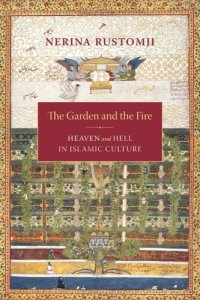
Ebook: The Garden and the Fire: Heaven and Hell in Islamic Culture
Author: Nerina Rustomji
- Year: 2008
- Publisher: Columbia University Press
- Language: English
- pdf
Islamic conceptions of heaven and hell began in the seventh century as an early doctrinal innovation, but by the twelfth century, they had evolved into a highly formalized ideal of perfection. In tracking this transformation, Nerina Rustomji reveals the distinct material culture and aesthetic vocabulary Muslims developed to understand heaven and hell and identifies the communities and strategies that took shape around the promise of a future world after death. She also conducts a meticulous study of texts and images and carefully connects the landscape and social dynamics of the afterworld with earthly models and expectations. By employing material culture as a method of historical inquiry, Rustomji points to the reflections, discussions, and constructions that actively influenced Muslims' picture of the afterworld, culminating in a distinct religious aesthetic.
Islamic conceptions of heaven and hell began in the seventh century as an early doctrinal innovation, but by the twelfth century, these notions had evolved into a highly formalized ideal of perfection. In tracking this transformation, Nerina Rustomji reveals the distinct material culture and aesthetic vocabulary Muslims developed to understand heaven and hell and identifies the communities and strategies of defense that took shape around the promise of a future world.
Ideas of the afterworld profoundly influenced daily behaviors in Islamic society and gave rise to a code of ethics that encouraged abstinence from sumptuous objects, such as silver vessels and silk, so they could be appreciated later in heaven. Rustomji conducts a meticulous study of texts and images and carefully connects the landscape and social dynamics of the afterworld with earthly models and expectations. Male servants and female companions become otherworldly objects in the afterlife, and stories of rewards and punishment helped preachers promote religious reform. By employing material culture as a method of historical inquiry, Rustomji points to the reflections, discussions, and constructions that actively influenced Muslims' picture of the afterworld, culminating in a distinct religious aesthetic.